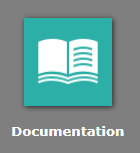Within Message Tracking, data is usually available for 30 days. It is possible to copy the data into your own long-term archive.
SEEBURGER collects all processed data and can provide the following data types for you, depending on your archiving strategy:
source files (before first conversion)
intermediate files, i.e. SEE XML files (when using double conversion)
target files (after second conversion)
log files
PDF reports (when using double conversion)
Usually, a schedular is set up to regularly collect all data in Message Tracking flagged for archiving. These flags are set initially during the process configuration at the beginning of the iPaaS workflow. The flags can be defined individually per business process.
The collected data is sorted according to your requirements and put into a zip folder. The zip folder is then sent to you the way you defined in the process configuration, i.e. via https, AS2 or other protocols.
|
Note: The process of zipping and sending the data must follow a specific configuration, that means a specific naming convention. Not following the naming convention can lead to additional costs for you because the data then is included in accounting. The naming convention for the routing process is: CustomerArchive_[CUSTOMERNAME]; e.g.: CustomerArchive_SEEBURGER |
You can find detailed information on naming the routing process and more in the user guide B2B Configuration Management Guide in the app Documentation in your BIS Portal.
